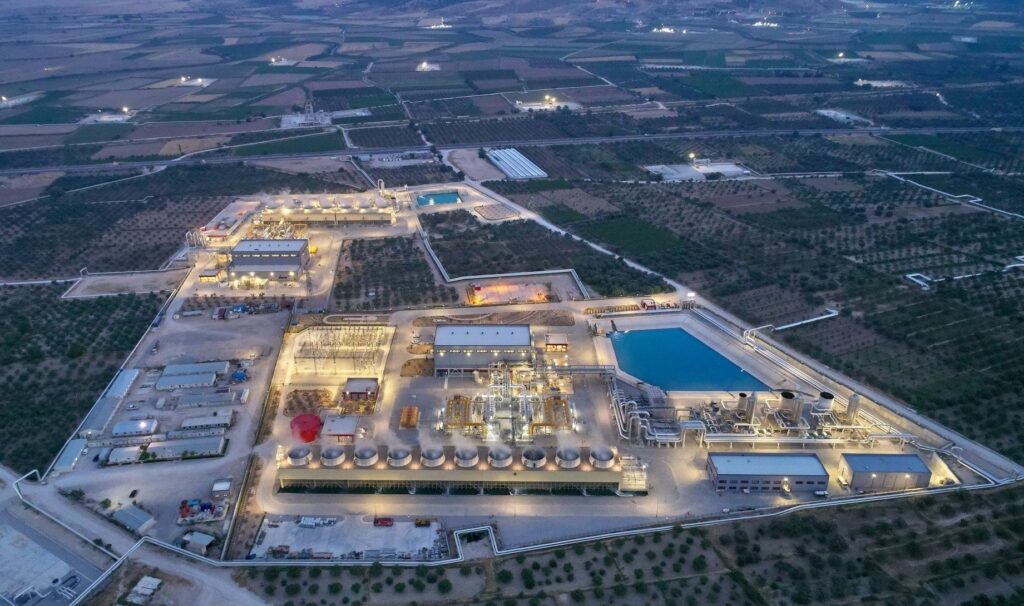Türkiye’s Energy Security Challenges

Energy security is not only about the continuity of access to resources but also about ensuring a sustainable balance between production and consumption in line with environmental and climate targets. Türkiye, driven by rapid population growth, industrialization, and economic expansion, faces a steadily increasing demand for energy. However, the way in which this demand is met directly shapes both short-term supply security and long-term development and climate policies.
Türkiye’s Energy Balance and Source Distribution in 2024
As of 2024, Türkiye’s electricity consumption stood at 347.9 TWh, while production reached 348.9 TWh. Although this balance appears stable in the short term, the distribution of sources reveals significant structural dependencies:
- 35.2% coal
- 18.9% natural gas
- 21.5% hydroelectric
- 10.5% wind
- 7.5% solar
- 3.2% geothermal
- 3.2% other (biomass, waste heat, etc.)
These figures demonstrate that fossil fuels still account for 54.1% of Türkiye’s electricity production. The heavy reliance on coal and natural gas amplifies risks to both environmental sustainability and external dependency.
New Dimension of Fossil Dependency: U.S. and Australia Agreements
Türkiye’s recent long-term agreements with the United States and Australia for the import of liquefied natural gas (LNG) and coal underscore a short-term, supplier-focused approach to energy security.
While these agreements are officially justified as enhancing supply diversification, in practice they reinforce fossil fuel dependency and undermine Türkiye’s climate commitments. Instead of channeling resources into accelerating renewable energy capacity, such deals lock the country into fossil-based infrastructures, delaying the energy transition and weakening sustainability targets.
Thus, the critical question is not “from whom does Türkiye import energy?” but rather “why does Türkiye still maintain such high levels of fossil fuel dependency, and why has renewable energy capacity not been sufficiently expanded?”
The Strategic Role of Renewable Energy
Türkiye possesses considerable potential for renewable energy development, supported by its geography and natural conditions:
- Wind energy: The Aegean and Marmara regions demonstrate capacity factors comparable to European benchmarks.
- Solar energy: With nearly 2,700 hours of annual sunshine, Türkiye is well positioned to expand solar investments.
- Geothermal energy: Türkiye ranks among the leading countries in Europe in geothermal capacity.
- Biomass and waste-to-energy: Industrial hubs provide opportunities for circular economy solutions.
Nevertheless, current data indicate that this potential remains underutilized. Although renewables account for 42% of electricity production, nearly half of this share depends on hydropower, which is highly vulnerable to climatic variability. In this context, wind and solar—both increasingly cost-effective and sustainable—must become the core pillars of Türkiye’s energy security strategy.
Policy Recommendations and Future Outlook
Türkiye’s energy security strategy should prioritize transforming its production model rather than merely diversifying supplier countries. To achieve this, the following steps are critical:
- Accelerating renewable capacity expansion, especially in solar and wind.
- Investing in storage technologies, such as advanced batteries and hydrogen systems.
- Enhancing energy efficiency programs in both industrial and household consumption.
- Strengthening domestic R&D and technology production, including panels, turbines, and storage solutions.
- Promoting regional energy integration, enabling the trade of surplus renewable electricity via interconnected grids.
However, fossil-based long-term deals with the U.S. and Australia represent a major obstacle to this transformation. They provide temporary supply relief while deepening structural dependencies, directly conflicting with Türkiye’s 2053 net-zero carbon target.
Conclusion
Debates on Türkiye’s energy security often revolve around the question of “who supplies the energy?” Yet the real strategic challenge lies in why fossil fuel dependency persists and why renewable energy production has not been scaled up to match the country’s potential.
Recent agreements with the U.S. and Australia consolidate fossil dependency and postpone green transition efforts, contradicting Türkiye’s climate commitments. True energy security will not be achieved by short-term diversification of suppliers but by structurally reducing fossil fuel dependency through a decisive increase in renewable energy production. Without such transformation, current balances will remain a temporary comfort zone, masking deeper vulnerabilities.


